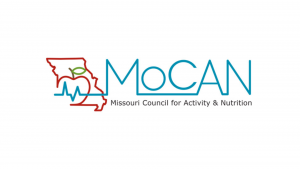National Chiropractic Health Month in October is the perfect time to reflect on how chiropractic care improves your life. The event helps to raises public awareness of the importance of musculoskeletal health and the benefits of chiropractic care as well as its natural, whole-person, patient-centered and drug-free approach to health and wellness. Not sure how to observe this important month? Try a few of these suggestions.
Keep Moving
Stiff joints and tight muscles are more likely to be a problem if you don’t get enough exercise or spend too much time sitting. Fortunately, increasing your activity level is a simple way to avoid pain and stiffness. In fact, movement is so important that the American Chiropractic Association has made “Keep Moving” its theme for this year’s National Chiropractic Health Month.
Synovial fluid surrounding your joints decreases friction when you move helping joints move easily. The more you move, the more fluid circulates around your joints. Movement also helps nutrients reach your joints and muscles, reduces muscle stiffness and spasms, and makes it easier for your body to remove old, damaged cells from your joints.
Regular exercise keeps your bones strong and strengthens the muscles, ligaments, and tendons that support your joints. Although exercising in the gym is an excellent way to increase your activity level, you don’t need to participate in a formal workout program to enjoy the benefits of moving more. Walking, riding your bike, dancing, and gardening will keep your joints limber and strong.
Use Proper Lifting Techniques
According to the National Safety Council, the way you lift boxes and other heavy objects may increase your risk of a back injury, which is the second most common workplace injury. Poor lifting techniques stress the joints and muscles in your back, causing mild to severe pain.
Prevent injuries by following these steps when lifting:
- Tighten your core to brace and prepare for the movement; maintain this bracing throughout the entire movement.
- Hinge at your hips and bend your legs to keep your back straight when you lower your body to lift an object.
- Keep the object close to your body when lifting.
- Don’t twist your spine while carrying something heavy.
- Bend your knees and slowly lower the object when you’re ready to put it down.
Even if you follow safe lifting techniques, you can still hurt your back if you lift something too heavy. Pick up a corner of the box or object first if you’re unsure of the weight. If the object feels very heavy, ask for help.
Embrace a Healthy Lifestyle
Eating healthy foods lowers your risk of developing serious conditions ranging from heart disease to diabetes and also helps you avoid joint issues. Making smart food choices ensures that your joints receive the nutrients needed to function efficiently and may help you heal faster if you do experience an injury.
Limit the number of processed foods you eat and add whole grains, fresh meat and poultry, fruits and vegetables, and healthy fats such as nuts to your diet. Not sure what to buy at the grocery store? Try shopping around the outside aisles of the store because that tends to be where most grocery stores keep the fresh and unprocessed foods. Also, giving up smoking or heavy drinking will also help you protect your joints.
See A Chiropractor
Visiting the chiropractor when you first notice pain, muscle spasms, or reduced range of motion can help you feel better faster. At Active Health Chiropractic, Dr. Jones offers many treatments designed to ease pain and mobility, including:
- Spinal Manipulation (adjustments)
- Acupuncture and Dry Needling
- Cupping
- Heat Therapies
- Soft Tissue Manipulation and Mobilization
- Ultrasound Therapy
- Transcutaneous electrical nerve stimulation (TENS) or Electrical Stimulation
- Functional Movement Assessments
Chiropractic care in conjunction with your healthy lifestyle is a great recipe to keep you healthy and moving. If you are currently experiencing pain that is keeping you from doing the things that you love, scheduling an appointment for an exam can play a vital role in keeping moving. You can schedule an appointment by calling 417-365-3215 or online at https://www.acthealthchiro.com/.
Reference:
Austin R. Jones, DC
Active Health Chiropractic

